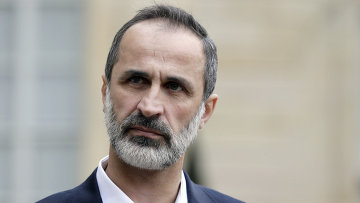CAIRO: The Supreme Council of the Armed Forces (SCAF) said in a statement issued Wednesday on its Facebook page, that it does not interfere in the media’s policies, claiming that “rumors” to that effect aim to divide the army and the people.
In communiqué 49, SCAF said that stories published by the media are solely subject to the respective policies of individual media outlets in addressing news and events.
“All decisions issued by [SCAF] are published [transparently], due to the council’s belief in the importance of publishing facts immediately,” the statement added.
“The ultimate goal of SCAF and the people in this coming period is to support the Egyptian media to regain its leadership role, which greatly affected Arab and Islamic nations in them past,” the statement said.
The council said the media enjoys “absolute freedom” in publishing or addressing any issue and is responsible for its own credibility.
Yet, according to a release by Human Rights Watch published on April 11, “on March 22, General Ismail Etman, sent a letter to editors of Egyptian newspapers telling them "not to publish any articles, news, press, releases, complaints, advertising, pictures concerning the armed forces or the leadership of the armed forces, except after consulting the Morale Affairs directorate and the Military Intelligence since these are the competent parties to examine such issues to protect the safety of the nation."
Human Rights Watch (HRW) added that it had obtained a photocopy of this letter and confirmed its authenticity. Daily News Egypt also obtained a scan of this letter from HRW, which, however did not reveal the name of the media organization it was addressed to because it preferred to remain anonymous.
Mohamed Fawzy, managing editor of the online Dostor newspaper, said that while the army’s statements are true to some extent, the media is yet to fully exercise this newfound freedom, implying that it is not yet clear what the army’s reaction will be when that does happen.
“If the army truly believes in freedom of expression, then why hasn’t it approved the creation of a freedom of information act, which we have been demanding for so long,” Fawzy said.
Abdel-Halim Qandil, editor-in-chief of the independent weekly Sawt Al-Umma and coordinator of the Kefaya Movement for Change, agreed: “We have what is called customary freedom which isn’t based on any kind of legislation.”
“We want media freedom that lasts forever, not just during this current phase,” Qandil said.
He added that media in Egypt following the January 25 Revolution suffered from a state of chaos as many prominent journalists and anchors who used to vigorously support the former regime are now cheerleading the revolutionaries.
“We need to reorganize…and establish a new transparent media that supports the truth,” Qandil said.
He did stress that there was no interference from the army regarding the articles published by his newspaper, although it had been directly criticizing the army’s policies and lack of action, especially before investigations began with ousted president Hosni Mubarak and his sons, who are now detained.
Fawzy agreed that there was a level of freedom in criticizing the army’s policies, citing the columns of prominent journalist and screenwriter Belal Fadl and bestselling Egyptian novelist and member of the National Association for Change Alaa El-Aswany.
He added that no one had ventured to criticize the army as an institution and its work mechanisms.
Fawzy said that the detention of blogger Maikel Nabil for criticizing the army on his blog proved the army’s failure in implementing and respecting freedom of expression.
Nabil was sentenced to three years in prison by a military court earlier this month on charges of spreading false news and insulting the military institution. In his post, Nabil wrote about the use of violence by the army towards civilians and using the Egyptian Museum as a torture chamber.
Known for his controversial views regarding the state of Israel and other issues, Nabil cited on his blog what he calls the army’s conspiracy against the revolution, recounting torture allegations by military police in a post titled “The army and the people are not one hand.”
Fawzy said that although he completely disagreed with Nabil’s views especially on Israel, he believed that Nabil should have at least been given a fair trial before a civil court not a military court.



